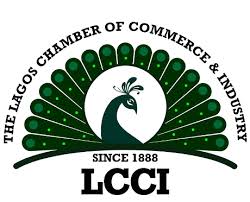The Lagos Chamber of Commerce & Industry (LCCI) has commended the Federal Government on the outcomes of President Bola Ahmed Tinubu’s recent diplomatic missions to Brazil and Japan, describing them as “new trade opportunities worth exploring” amid global tariff tensions.
In a statement, the Chamber noted that Nigeria’s non-oil exports rose by 19.6% to $3.225 billion in the first half of 2025, driven largely by cocoa, urea/fertilizer, and cashew nuts. Export volumes also grew to 4.04 million metric tons from 3.83 million tons in the same period of 2024, reflecting increased processing capacity.
However, LCCI warned that shrinking U.S. export earnings and below-par crude oil prices could reduce FX inflows in the short term. The Chamber stressed that this underlines the urgency of boosting non-oil exports and expanding intra-African trade.
The Chamber praised the signing of the Bilateral Air Service Agreement (BASA) with Brazil, which allows direct flights between both nations. According to LCCI, the deal will expand export markets, boost tourism and cultural exchange, and unlock new trade routes for Nigerian businesses. It also provides room for partnerships in aircraft maintenance, aerospace engineering, and vocational training for Nigerian youth.
“The Nigeria–Brazil BASA should not be just about flights, but about creating new pathways for trade, mobility, and job opportunities for Nigerian youths. It must therefore be activated quickly and strategically,” the statement read.
On the Tokyo International Conference on African Development (TICAD 9), the Chamber welcomed Japan’s $238 million collaborative financing framework for upgrading Nigeria’s electricity grid infrastructure. It urged the government to also invest in renewable energy, expand CNG technologies, and create enabling environments for both state-level and foreign investments.
LCCI emphasized that Nigeria’s foreign policy must now focus on translating agreements into tangible outcomes, with the private sector fully integrated in follow-up mechanisms, clear implementation timelines, and skills development initiatives.
“Japan sees our youth as Africa’s biggest strength. Nigeria must equip its young people with the technical skills to compete globally,” the statement added.
According to LCCI, the right actions on signed agreements with strategic partners can drive inclusive growth, boost export earnings, and rebrand Nigeria as a reform-driven, youth-powered, and investment-ready economy.
“What was signed abroad must be translated into prosperity at home,” the Chamber concluded.















